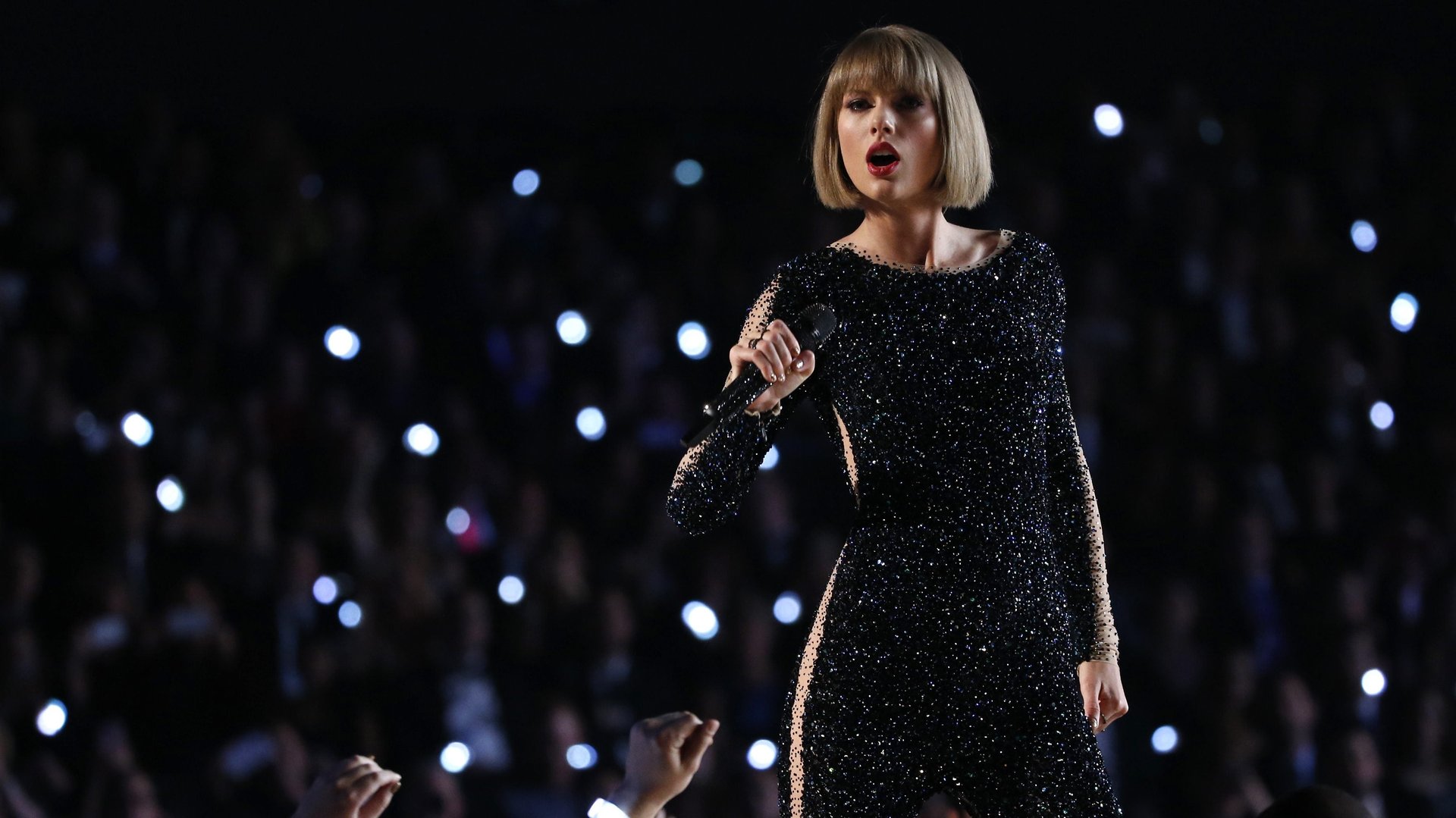In the age of Spotify, radio stations should no longer get away with playing music for free
Tonight, around 25 million Americans will tune in to watch the Grammy Awards—music’s biggest night. There is a lot to celebrate. We’ll see great performances from very diverse artists. Long-time favorites will be honored and new acts will be introduced. It’s a good time to remember what has made music so important to our history, and why music, among all forms of creative expression, is more relevant today than ever.


Tonight, around 25 million Americans will tune in to watch the Grammy Awards—music’s biggest night. There is a lot to celebrate. We’ll see great performances from very diverse artists. Long-time favorites will be honored and new acts will be introduced. It’s a good time to remember what has made music so important to our history, and why music, among all forms of creative expression, is more relevant today than ever.
Music is also a very innovative industry that provides a livelihood for scores of artists, musicians, producers, engineers, writers and composers in every state in America. Of course there are stars we all know, but there are also tens of thousands of smaller acts and the people they work with that make up the fabric of the US music community.
But while we celebrate music’s biggest night, we also need to address music’s biggest challenge.
The music industry has evolved dramatically over the last decade, first with the advent of iTunes followed by music streaming. In stark contrast, US laws have failed to keep up. Thanks to the deep pockets of powerful lobbying interests, the music ecosystem has been rigged to favor the most profitable traditional radio stations that use the intellectual property of artists to reap billions in advertising revenue annually. Unlike every other platform that delivers music to fans, legacy FM stations never pay a cent to the musicians who perform the songs they use on the air.
Owners of radio station conglomerates have recently renewed their effort in Congress to maintain this exemption from the free market, giving them a huge competitive advantage over the innovative new services that do compensate artists for their work. Under the misnomer of the “Local Radio Freedom Act”, radio station owners are using their profits and influence in Washington to preserve a decades-old subsidy that means they don’t have to play by the same rules as other music platforms. What is most astounding is that these companies certainly doesn’t need any more help from lawmakers in Washington. Ten large radio conglomerates are responsible for about half of the revenue generated by the nearly $15 billion radio industry while simultaneously maintaining an average operating margin over 30 percent.
To justify this massive subsidy, these powerful interests perpetuate the myth that Big Radio is where new artists and music are discovered. The truth is that today, musicians and their songs are discovered through social media, digital music services and a multitude of online entertainment and news platforms. In fact, analysis shows that more than 80% of what is played by traditional radio stations of all genres is music that is over 2-years-old, and has fallen off the charts. In 2017, Big Radio is certainly not discovering creative new artists or “compensating” them by promoting their music.
The US stands alongside a just few other countries, including China, Iran and North Korea, in not recognizing a performance right for music creators. Because we lack this right, our economy misses out on bringing home more than $200 million a year in performance royalties that are owed to American artists from the foreign radio stations that play their songs for profits overseas. Other countries where American music is wildly popular won’t send radio royalties (which they do collect) here if we don’t also compensate their artists when they are played on the radio.
The last six administrations have supported radio performance rights and fair pay for music creators. With the new Trump administration focused on American competitiveness and draining the swamp, the time has come to eliminate the radio conglomerates’ decades-old subsidy. This, combined with momentum on copyright reform and performance rights for music creators in Congress, creates a historic opportunity during the 115th Congress for the US to finally update its copyright laws to treat music creators the same, regardless of how fans choose to listen to their work.
It’s time for the US to join every other industrialized nation and make radio station owners operate in a free market. Most importantly, it is finally time that America’s talented artists and musicians are rewarded for their work on every platform that profits from it.